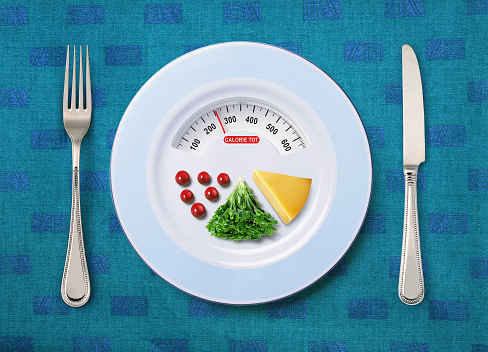8 subtle signs of disordered eating
In recognition of Eating Disorder Awareness Week, here are some lesser-known signs of disordered eating patterns to watch out for
 Photo by:
Getty Images
Photo by:
Getty Images
This week was Eating Disorders Awareness Week, a national week of action during which groups across Canada focus on educating the public about eating disorders. According to Game Plan (a wellness program for Canadian athletes) and the Canadian Centre for Mental Health and Sport (CCMHS), there has been an increase in eating disorders among athletes during the COVID-19 pandemic, making Eating Disorders Awareness Week even more important this year. The following behaviours are subtle signs that disordered eating patterns could be present, and if you notice them in yourself, a loved one or a training partner, it may be time to seek help.
View this post on Instagram
1. You only use particular utensils or plates to eat
This could be using only small utensils (such as those intended for children) or using plates with portion dividers to either slow down how quickly you’re eating or make it appear as though you have more food on your plate in order to control your portions.
2. Excessive interest in what other people are eating
If you find you’re poring over people’s Instagram pages obsessing over their What I Ate Wednesday posts, constantly asking others to describe how their food tastes in great detail or asking your spouse what they ate while they were away on a business trip, this could be a sign that you’ve become overly preoccupied with food.
3. You measure/count everything
For example, you always add three raisins to your oatmeal, or you only ever eat half a cup of rice in one sitting. If you are meticulously measuring every piece of food on your plate and find yourself getting stressed in situations where you are unable to do so, this is a sign that your relationship with food has become overly controlling.
4. You have food rules
Rules like you can only eat one banana per day, or you never eat more than one-quarter of an avocado at a time or you have an inflexible routine around eating are all symptoms of disordered eating patterns.
5. You’re cutting out food groups
This can be difficult to spot, because many people will justify cutting out food groups under the guise of allergies, sensitivities or dietary preferences. For example, someone may say they don’t eat gluten in an effort to avoid bread, or they may decide to follow a vegan diet as an excuse not to eat meat and cheese.
6. Obsessing over healthy food
Although it’s not an officially-recognized eating disorder, orthorexia (an obsession with healthy eating) is a very real problem that can impact your mental and physical health. Examples of orthorexia could include refusal to eat foods that you deem to be unhealthy, obsessively researching food ingredients and purchasing lots of products like teas or powders that are purported to have health benefits.
7. Encouraging others to eat ‘unhealthy’ foods
When you go out to eat with friends, ordering the salad but encouraging your friends to get the higher-calorie items like the creamy alfredo or the fried dish could be a subtle cue that your relationship with food is becoming unhealthy.
Related: Is the lighter triathlete the better triathlete?
8. Passing on social occasions
Constantly declining invitations to go out for dinner, go to a party or have a drink with friends is a red flag that something is amiss. Social gatherings often involve food and drinks, and avoiding them in an effort to avoid unhealthy foods is a definite sign that your concern for health has gone too far. Similarly, always offering to make the food for social gatherings in an effort to maintain control over what is served is another behaviour associated with disordered eating.
These behaviours don’t necessarily indicate that you or your loved one has an eating disorder, but they are signs of disordered eating patterns or an unhealthy relationship with food that could eventually become a clinical disorder. Recovering from an eating disorder is a complex process, and these behaviours could also be a sign that you are recovering from an eating disorder. If this is the case, be mindful of these patterns in order to prevent a relapse.
If you suspect that you, a loved one or a training partner is struggling with disordered eating, we strongly recommend that you get help. The National Eating Disorder Information Centre (NEDIC) is an excellent resource that provides information, resources, referrals and support to Canadians affected by eating disorders.
This story originally appeared on the Canadian Running Magazine website.

